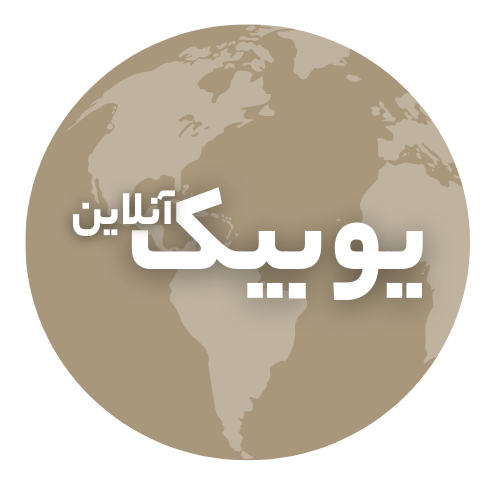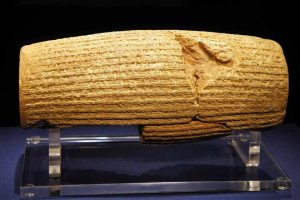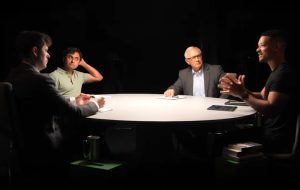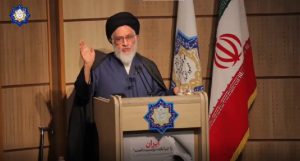Group of Thought: When it comes to philosophical discussions, Hegel and Kant often come to mind. If it is important, how philosophy comes to our daily life. The article you read is about the benefit of today’s reading book for decades in the next decades. This post was written by Joshua Ratman and on August 1, titled “What Dos It Really Mean To Learn” on the website The New Yorker It has been published and for the first time on December 5, 2008 with the translation of Mohammad Mehdipour on the website Humanities Translation Published. Joshua Rothman Secretary of Thought Division The New Yorker He has been working with this magazine for 5 years. He is the writer of the weekly column of “Open Kushan” who deals with the subject of human from different angles. Previously, he was a columnist for the Boston Globe Thought. This article is important because it shows that a society that does not have a book reads that the future of its creations is blind. And in the Iranian society, which is sold for a 400 -page book for 700,000 dollars, it means that this society has been a social drought in the field of personal life. Desert souls will be neither attractive nor teaching for each other. This article reads:
****
I read the book Midelmachak for the first time in the second year of the university, but I didn’t understand it. I did not understand why Dortia, a young and intelligent woman, married that old man. How could it be so stupid? It was unlikely that another person would have noticed in the class. Our master had a disregard. With greed, he was shouting a diet that shouted, “Of course, your understanding and understanding will not be.” A little later he said again, “This line, here. Let me get forty years and get divorced from Olton’s wife, then you read this book again and say ‘Oh, now it fell!’
Certainly, one of the evils of human science education is that much of it takes between eighteen and twenty -two years. We do not teach the twelve -year -olds, who have no car at all; So why should we force them to read a novel about the regrets of their lives, while they have no experience of regret. However, reading Middelmac’s novel in the second year of a student had a philosophy: the knowledge that comes at an early age comes to Adam’s work. The intellectual patterns that are now created are now and later create our thinking; The ideas we first get to know in different arts prepare us for the rest of our lives. Initially, this may seem very unpredictable and vague until we understand the fact that knowledge and knowledge are always before their use. Today you are studying at the Faculty of Law in the hope that you can take over a complicated lawyer years later; Years before you saved a stranger, you have learned a cardiac revival; You read about the confrontation with the bear attack on the Internet because you don’t know when it comes to your job. In the mid -twentieth century, Toyota invented a method called “timely production” by which car parts were made and delivered just at the time of assembly. This method was very efficient because it reduced waste and maintenance costs. But people’s minds don’t do that; Our knowledge must eat decades in the warehouses of our minds to finally understand how we can use them.
“What is the benefit of reading these books?” Leslie Valint, a prominent scientist who teaches at Harvard University, believes that if we do not have a proper look at the brain mechanism in using information, we cannot answer this question. Valint says that in the face of new issues, human beings are cognized and initiative in the face of a multitude of things they have learned over time, so it is likely that what you are teaching today is not hurt, but that does not mean it is useless.
According to Leslie Valint, a prominent computer scientist who teaches at Harvard University, this is our strengths. He calls the long -term learning ability to be “education”, and in his new book, The Importance of Education 1, he says this is the key to our success. We usually think that it is the intelligence that has made the human mind has been separated, but Valinet writes that if one is to understand all the complexities of reality, then “intelligence alone does not go anywhere.” To do this, we have to discuss comprehensive and flexible theories about the world – the theories that are in the new, unexpected and unknown conditions – and it is not possible to do so unless we gradually, and often randomly and coincidentally, bring together a variety of knowledge. Find their ratio. In this way, we build a system of beliefs that are more comprehensive and richer than the beliefs we gain with personal experience. And so, after the experience of our first divorce, we understand how we should apply borrowed insights from English literature in our lives.
Volint won the Turing Prize, a prize that holds the Nobel Prize in the field of work on the ideas of distributed artificial intelligence and distributed computing 2 (where several computers work together to solve a specific problem). In his book, he compares the method of learning artificial intelligence with human learning. Artificial intelligence is amazingly intelligent and can even have intuitive thinking like humans. But he said artificial intelligence systems are not as flexible as our minds, because they are not yet educated. Even the most up -to -date artificial intelligence is learned through a dry and irresponsible process, and despite the huge costs that are spent and despite the amount of new information that is shed, they are not really smarter.;; It is as if their minds are frozen on the graduation day. But the human mind constantly promotes itself to the gradual and infinite processes and relates and attributes to new ideas and ideas, on the one hand, and former information, on the other hand. “We combine the different sciences we have gained over the years with complex theories that have numerous and varied components.“
Valint says he tries not to use the word “intelligent” to describe humans (in fact, when he sees others use the word “sometimes”). Instead, he speaks of “valuable abilities that are somehow needed to learn and are not limited to the common concepts of ICIO”. In his view, the educated mind can learn from books, lectures, conversations, experiences, and three schools – in other words, from all things – and relate the almost forgotten aspects of its epistemic reserves and learn new knowledge. When we say that someone learns fast or is “educated” we admire the degree of education, but What really makes the person really educates is that he can “use for goals that are not told or trained”; Education is something like the “feathers of urbanization” -a trustee that is “the unprecedented ability of people to deal with the practical issues of everyday life”– And is closely associated with common sense. Valint says that when we think someone has a “higher education”, it may mean that he is trained at school and university, but it can mean that he was particularly educated, that is, he knew how “from every opportunity. “The training he earns, whether formal or informal, uses well.”
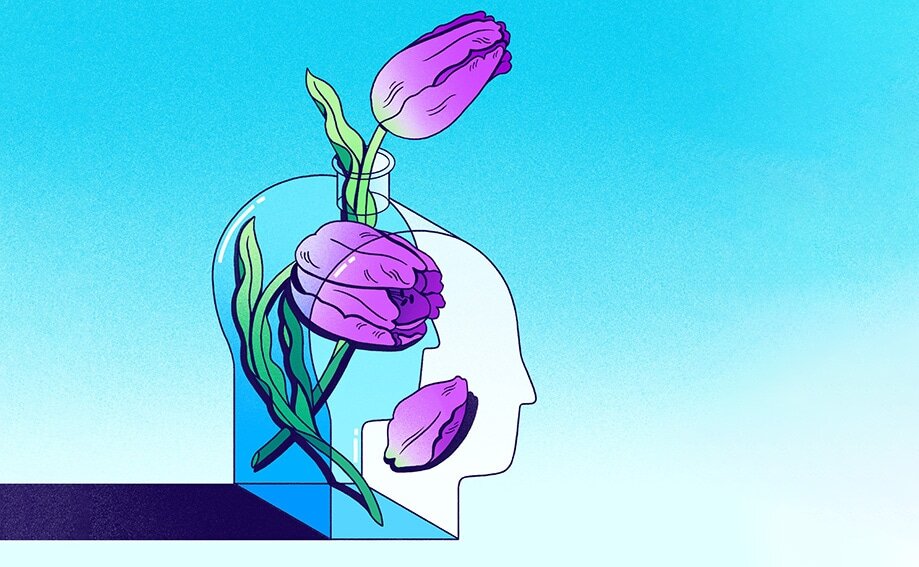
Imagers: Jozi Norton
We probably like our political leaders to be more educated: “Usually, when selected, they have to decide on issues that are far beyond their knowledge and experience.” For Valinet, the education of physicians is also important to us. Imagine you feel pain in your side. Is it from the appendix? You definitely do not want to listen to some of your dversions, but you prefer to see your doctor who has the experience of treating thousands. A physician’s artificial intelligence can also be trained by examining thousands of items. In fact, “if it has examined millions of patients, that is, the work that is not lost, it will probably give a diagnosis that is far beyond our expectation.” But Valint says, “The reason we go to the doctors is not just that they have seen thousands of patients, but because we think doctors recognize something that artificial intelligence is unable to diagnose.” The reason for this valuable distinction is the same educational characteristic.
Valint does not go into detail here, but we can understand the value of our hypothetical physician. Such a doctor may use a wide range of ideas and relationships that are the result of years of learning. Certainly during his studies, he reads a lot about the appendix and can say that it is not a problem. But his brother may be a professional cycling, and he may find a bike on your brother’s bottle, which resembles his brother’s water bottle. He has also recently read an article about the dangerous conditions of the city’s cycling routes. On the other hand, according to his experience, he has the theory: Patients’ personal life needs to be asked more. So he asks you whether you are cycling and, after finding out that you are bike, it is a goal: The pain of your bruising is caused by falling from the bike and has not yet been well healed. Because of her educational characteristic, this doctor will find you a chance to learn and gradually become a better physician.
After reading his book, I also thought about how I could enhance my education. I came to the conclusion that I had to try to learn more diverse topics and gain more experiences and be sure, when it comes to it, my mind can form a meaningful communication from those seemingly irrelevant communication issues. I also realized that it is not bad to remember the things I have learned before
This is a relatively brief and simple example of education. Sometimes Valinet speaks of more vague and perhaps more effective. New relationships, compositions, and applications that need to be trained are somewhat useful because they are not clear. Some at that time I learn a lesson in my life that seems to be used in another part of my life: for example When I swim on the beach, I always look at the beach’s umbrellas and think I have a little swimming. But when I swim in the back instead of the front crack, I wonder how far I am from my starting point. Gradually, I realized that we had to allow them to move a little forward before judging things that require gradual progress. The discovery helped me in writing (as well as an incentive to clean the warehouse). When I was a student, I spent a unit on civil engineering whose theme was structural forces that entered the bridges and skyscrapers. Interestingly, the tips of that class are constantly remembered in the face of various topics. The wind imports the walls of tall buildings and tries to bend them. Similarly, when a new stressful factor enters your life, it does not only affect a certain part of your life, but also affects your whole life. Seeing the human mind from the door of education is very attractive; It causes one to seek other epistemic intersections.
Waliant believes that in the discussion of education we need to put the idea of education. We can know its dimensions and look for ways to teach it in schools and strengthen it in adults. At a time when technology progress is so fast and new things to learn, we must seek to create a more learning community (if it is proven that the Valinet’s proposal for “education” is tr became). After reading his book, I also thought about how I could enhance my education. I came to the conclusion that I had to try to learn more diverse topics and gain more experiences and be sure, when it comes to it, my mind can form a meaningful communication from those seemingly irrelevant communication issues. I also realized that it is not bad to remember the things I have learned before. In the basement of my home, I have a few books from my undergraduate and undergraduate. There is also the book Middelmac, among the many other books that I did not understand, but certainly have become valuable to me over time. What is known as human science education 4 can be almost defined as: Extensive study of things that do not seem to be used immediately or practically, in the hope that what we teach them will be useful in the future. Who thought about one of the best defenders of a computer science education.
Footnote
1-the importance of being Educable
2-Distributed Computation
3-Koan refers to the mystery that Zen masters used to tell their students in the form of a story, conversation or issue to challenge their minds. [مترجم].
4-Liberal -rts
Read more:
Why should you read the book, why don’t we read the book
How does reading make you intelligent?
216216
منبع: www.khabaronline.ir
